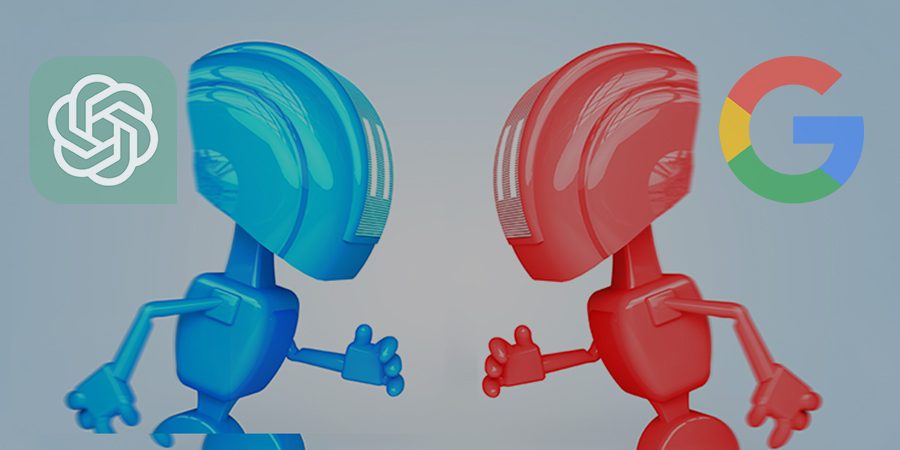Subscribe
"Unlock exclusive insights and elevate your financial wisdom with NetWorth.com — subscribe now to stay ahead in the wealth game!"

In this article, we’ll look at the reasons behind the launch of Anthropic’s new AI chatbot, Claude, and how it compares to other leading chatbots in the market. We’ll also discuss the company’s unique approach to AI and explore the various applications of Claude across different industries.
Key Takeaways:
Anthropic, an AI firm established by former OpenAI employees, has unveiled its new AI chatbot, Claude.
The company claims that Claude is not only less prone to generate harmful outputs but also offers a more seamless conversational experience compared to some of its competitors, such as Microsoft’s GPT-4-powered Bing.
Google’s $300 million investment in Anthropic earlier this year highlights the tech giant’s faith in the company’s potential.
Claude’s capabilities are similar to those of ChatGPT, allowing users to summarize content, answer questions, assist with writing, and generate code.
Moreover, users can fine-tune Claude’s tone, personality, and behavior.
While both Claude and ChatGPT offer similar services, Anthropic argues that their chatbot is easier to converse with, less likely to produce harmful content, and more controllable.
The company has already tested Claude with several organizations, including Notion, Quora, and DuckDuckGo.
Claude is available in two versions: the standard version and Claude Instant, a faster, more cost-effective, and lightweight alternative.
For more information on pricing and access, you can visit their website.
Claude, like ChatGPT, does not have internet access and was trained on public web pages up to spring 2021.
It has been designed to avoid producing harmful outputs and to prevent assisting users in illegal or unethical activities.
The chatbot’s standout feature, however, is its adoption of “constitutional AI.”
This approach utilizes a principle-based method to align AI systems with human intentions. Anthropic developed a list of roughly 10 principles that serve as a “constitution” to guide Claude’s responses.
These principles revolve around concepts like maximizing positive impact, avoiding harmful advice, and respecting users’ freedom of choice.
Despite these safety measures, Claude still has its limitations.
During its closed beta testing, it displayed poorer math and programming skills compared to ChatGPT and occasionally hallucinated, providing inaccurate information.
Anthropic aims to further improve Claude by addressing its limitations and reducing hallucinations.
The company also plans to allow developers to customize the chatbot’s constitutional principles according to their requirements.
Targeting primarily startups and larger enterprises, Anthropic is focusing on customer acquisition and delivering a superior, targeted product.
Although they are not currently pursuing a broad direct-to-consumer strategy, the company’s focus on safety and customization could make Claude a compelling option for various industries.
Anthropic has attracted significant investments, most notably Google’s $300 million stake in the company.
This financial backing places the spotlight on Claude and its potential to revolutionize the AI chatbot landscape by offering safer and more controlled interactions with users.
Several organizations have already implemented Claude, showcasing its versatility and effectiveness across different sectors.
Here are a few examples:
These use cases demonstrate Claude’s potential to streamline various processes across multiple industries, from search engines to legal services.
As AI chatbots become more advanced and widely adopted, concerns surrounding the ethical implications of their use have grown.
These concerns include the potential for chatbots to generate biased, offensive, or harmful content.
Anthropic aims to address these ethical concerns through Claude’s constitutional AI approach, which seeks to create a safer conversational experience for users.
By establishing guiding principles based on positive impact, harm avoidance, and user autonomy, Claude is designed to align more closely with human values and intentions.
While the company acknowledges the need for further improvements, Anthropic’s commitment to developing a more ethical AI chatbot is a noteworthy step towards addressing the ethical challenges posed by AI technology.
The AI chatbot market is becoming increasingly competitive, with major players like Microsoft, OpenAI, and now Anthropic vying for dominance.
Each company offers distinct features, advantages, and drawbacks in their AI chatbots, such as GPT-4-powered Bing, ChatGPT, and Claude.
As the market continues to grow, user preferences and requirements will likely shape the evolution of AI chatbots, with factors such as conversational ease, controllability, and ethical considerations playing crucial roles in determining which chatbot solutions come out on top.
With the launch of Claude, Anthropic is introducing an AI chatbot that prioritizes safer and more controlled conversations.
Although Claude faces stiff competition from other chatbots like ChatGPT and Microsoft’s GPT-4-powered Bing, its unique constitutional AI approach and focus on ethical considerations could set it apart in the ever-expanding AI chatbot market.
As more organizations adopt AI chatbots to enhance their services, the push for improved user experiences, ethical safeguards, and customizable features is likely to drive further innovations in the field.
Claude’s debut marks an important milestone in the development of AI chatbots that better align with human values and intentions, paving the way for more responsible and user-centric AI solutions in the future.